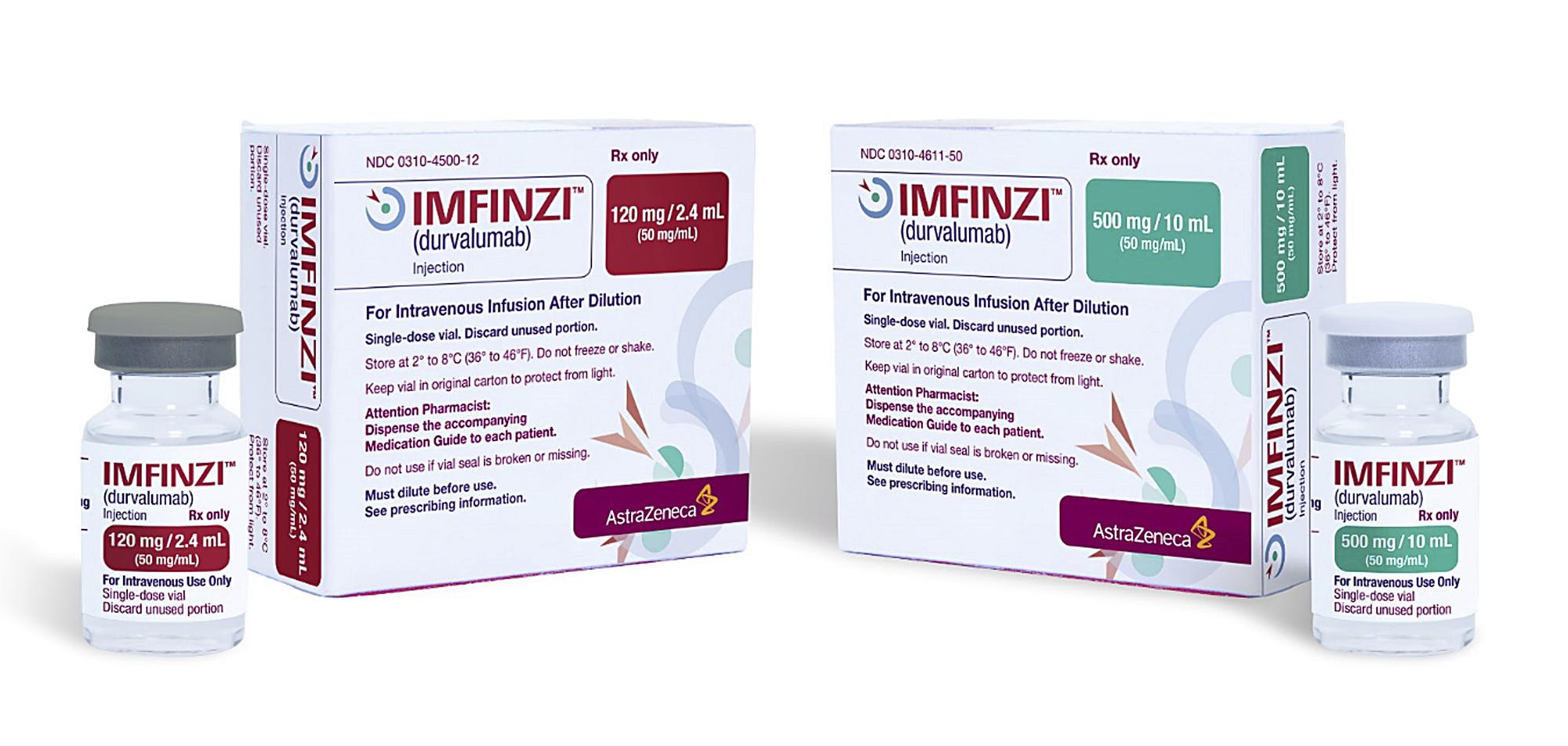ODAC unpicks AZ's Imfinzi trial in perioperative NSCLC

FDA reviewers were so frustrated by AstraZeneca's application for Imfinzi as a treatment before and after surgery for resectable non-small cell lung cancer (NSCLC) that they voted for a rethink about how 'perioperative' trials are designed.
While the Oncologic Drugs Advisory Committee (ODAC) acknowledged that PD-L1 inhibitor Imfinzi (durvalumab) had met the efficacy objective in the AEGEAN trial that supported the application, panellists were unhappy with the design of the study, which did not make it possible to separate the benefits of the pre- and post-surgery treatment phases.
So, rather than voting whether to approve the new indication, they followed the FDA's advice and instead voted – unanimously – that any studies on perioperative regimens for resectable NSCLC include an assessment of the contribution of each treatment phase individually.
That reflects comments made by the FDA reviewer in a briefing document published ahead of the advisory committee meeting which questioned whether the post-surgery treatment added to the toxicity of treatment without any additional clinical benefit.
In AEGEAN, Imfinzi plus chemotherapy was given ahead of surgery, compared to chemo alone, with Imfinzi or placebo continued afterwards. There was a significant 32% reduction in the risk of cancer recurrence, progression or death with the immunotherapy.
Members of the ODAC said they were concerned that they would be unable to have a discussion about the risks and benefits of AZ's perioperative regimen, given that alternatives are available, and that could place a burden on patients.
Bristol-Myers Squibb's PD-1 inhibitor Opdivo (nivolumab) plus has been approved since 2022 as a pre-surgery (neoadjuvant) treatment for resectable NSCLC, showing a 37% reduction in even-free survival in the CheckMate-816 study, and offering patients an option that reduces risk and doesn't need a treatment phase after surgery.
Meanwhile, MSD's rival drug Keytruda (pembrolizumab) was cleared with a perioperative label by the FDA last October based on the KEYNOTE-671 study, which showed a 28% improvement in overall survival – a tougher endpoint to hit – compared to neoadjuvant chemo on its own.
That also failed to isolate the pre- and post-treatment phases, something the FDA acknowledged in its briefing. However, the agency claimed it would not place too much additional burden on trial sponsors to use designs that isolate the contribution of neoadjuvant and adjuvant therapy.
The panellists discussed at length whether Imfinzi should be approved but did not vote on that, and overall a majority seemed to be of the mind that it should be given the go-ahead, although there were some calls for an additional clinical trial.
David Mitchell, acting consumer representative and president of Patients for Affordable Drug, said another trial should be run as giving a drug in the adjuvant setting for a year as in this case without "knowing if it's doing any good whatsoever", is unacceptable, although he was in favour of approval based on the current data.
In a statement, AZ said Imfinzi has already been approved in the UK and Switzerland for the indication covered by AEGEAN, and pointed out that the FDA is not bound by the ODAC's recommendation.
Given the Keytruda precedent, approval is possible, but the ODAC vote sends a warning shot across the bows of sponsors planning perioperative trials in NSCLC as well as other forms of cancer.












